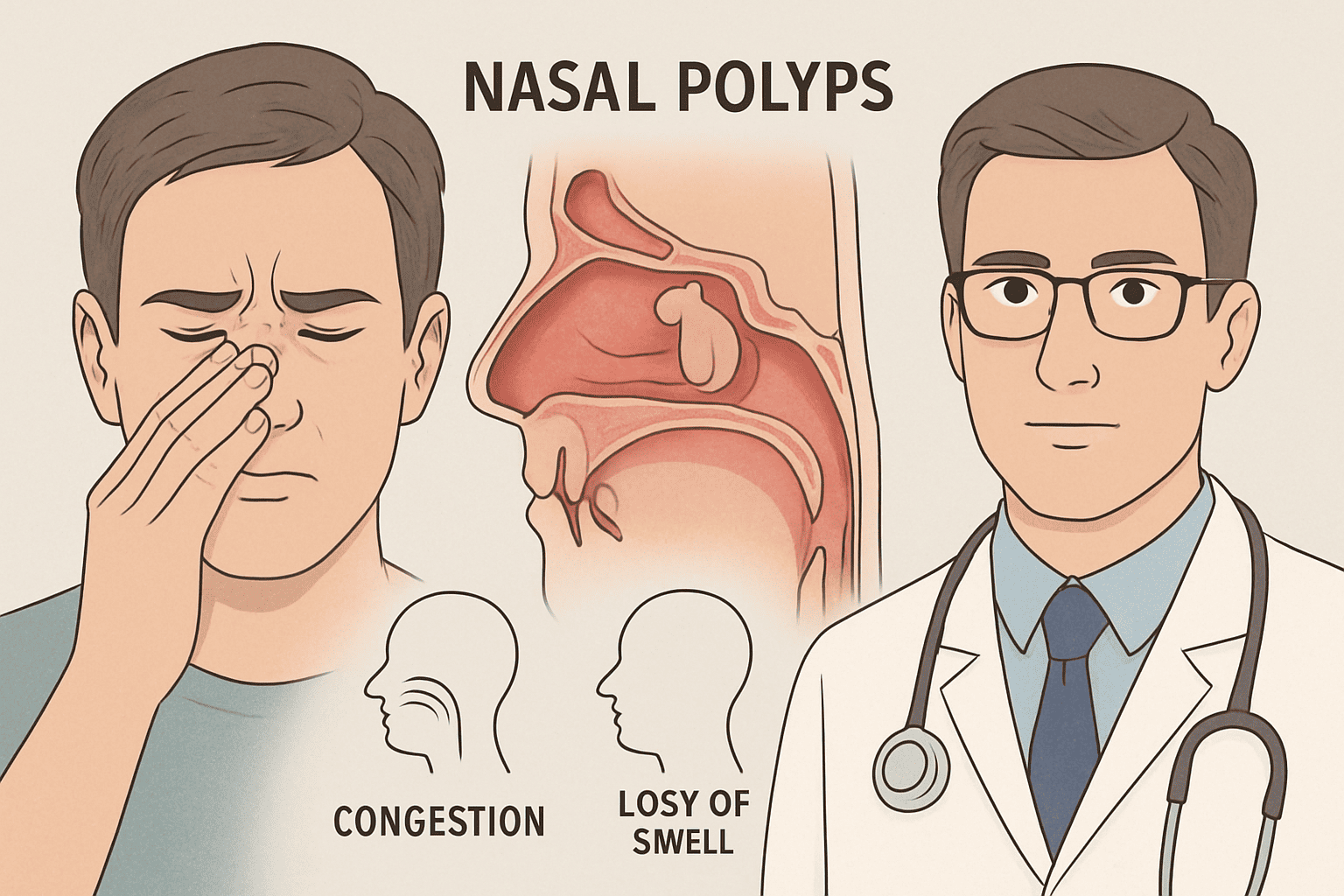What Are Nasal Polyps?
Nasal polyps are soft, noncancerous growths that form inside the nasal passages or sinuses. They are usually painless and shaped like small teardrops. While small polyps may not cause noticeable problems, larger ones can block airflow, affect your sense of smell, and make it harder to breathe through the nose.
Causes and Risk Factors of Nasal Polyps
Nasal polyps often develop due to long-term inflammation in the nose and sinuses. Several factors can increase your risk:
- Allergies – Seasonal allergies or allergic rhinitis can irritate the nasal lining.
- Sinus infections – Repeated or chronic sinus infections often trigger swelling and polyp formation.
- Asthma – People with asthma are more likely to develop nasal polyps.
- Immune system response – An overactive or sensitive immune system can cause continuous inflammation, leading to polyps.
- Family history – Genetics may also play a role, as nasal polyps sometimes run in families.
Common Symptoms of Nasal Polyps
Nasal polyps can range from mild to severe in their impact. Symptoms often include:
- Constant nasal congestion or blocked nose
- Loss of smell or reduced sense of taste
- Sinus pressure or facial pain
- Runny nose or postnasal drip
- Frequent sinus infections
- Snoring or trouble breathing through the nose
If you have these symptoms for weeks or months, it could be a sign of nasal polyps.
When to See an ENT Specialist
You should consult an Ear, Nose, and Throat (ENT) specialist if you:
- Struggle with breathing through your nose
- Have frequent sinus infections that don’t improve with treatment
- Notice your sense of smell is getting worse
- Experience ongoing sinus pressure and headaches
An ENT doctor can examine your nasal passages, run tests if needed, and suggest the right treatment plan.
Treatment Options for Nasal Polyps
Treatment depends on the size of the polyps and how severe your symptoms are. Options may include:
- Medications – Nasal sprays, corticosteroid drops, or tablets can reduce inflammation and shrink polyps.
- Surgery – For larger or stubborn polyps, a simple surgical procedure may be needed to remove them and improve airflow.
- Lifestyle changes – Managing allergies, avoiding irritants, and using saline nasal rinses can help prevent polyps from coming back.
Final Thoughts
Nasal polyps are common, but they don’t have to control your life. With the right treatment from an ENT specialist, you can breathe easier, reduce sinus problems, and improve your overall quality of life.

